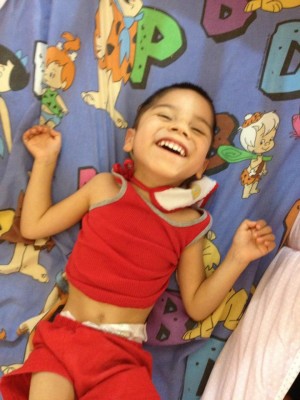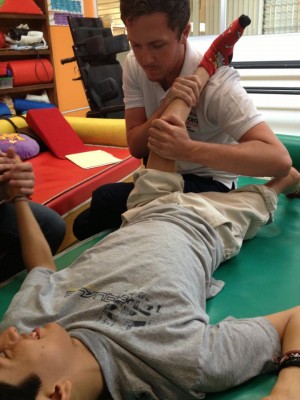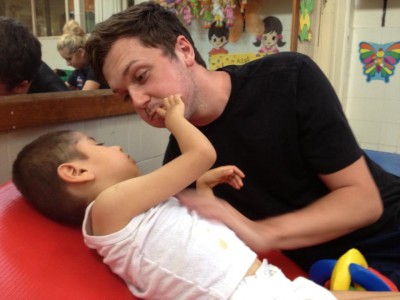My Physiotherapy Placement in Mexico
Published on Wednesday 23 November 2016My physiotherapy Elective Placement in Mexico
Richard Ford
Richard Ford is a physiotherapy student at the University of Salford. He joined our project in Mexico volunteering to work with disabled children.
 I spent 5 weeks at Hogares de la Caridad in Guadalajara, Mexico. This was my first time volunteering, being in Mexico and working with children.
I spent 5 weeks at Hogares de la Caridad in Guadalajara, Mexico. This was my first time volunteering, being in Mexico and working with children.
The children at this orphanage have cerebral palsy and some also have autism. Parts of Mexico receive very little funding for those who have been abandoned due to their disability. Physiotherapy is vitally important for these children and it is because they had received so little treatment for their condition in the past that some of them are now left with debilitating conditions.
I saw how cerebral palsy and this lack of treatment affects children, treating a mixture of patients. I had to quickly learn the importance of using non-verbal communication skills because many of the children couldn’t understand English and some could not communicate at all. One of the children I treated was four years old and was unable to talk, walk or feed himself.
I also worked with a child who hated physiotherapy treatment and who would scream anytime someone touched him. He was blind and had a cephalic disorder. Sometimes, a balance would have to be made between giving him vital physiotherapy treatment and leaving him be. Occasionally, we had to persist with his therapy, stretching his muscles and massaging him even though he was crying.
 The main treatments I used were massage, stretches, gait education, and proprioceptive exercises but it was not all about physiotherapy. I also helped with the day-to-day care of the children. This included spending time with the children and helping with feeding them at lunchtimes.
The main treatments I used were massage, stretches, gait education, and proprioceptive exercises but it was not all about physiotherapy. I also helped with the day-to-day care of the children. This included spending time with the children and helping with feeding them at lunchtimes.
For part of my time in Mexico, I travelled to Peurto Vallarta to volunteer at a day care centre for children called Pasitos de Luz. These children had a range of disabilities caused by various diseases which meant that they were all in need of physiotherapy. This clinic had quite basic and limited facilities so I had to come up with different ways in which to provide forms of treatment for the children, for instance gently rubbing grains of rice against their legs and arms to act as a proprioceptive feedback mechanism to regain balance and sensation. In addition to the treatment, the children were just happy to see some new faces and play lots of games.
 The trip gave me a real insight into physiotherapy and the treatment of disabilities in Mexico. One of the key lessons I learnt was how important is was to work with the whole team at the orphanage including the nurses, doctors, managers, other volunteers and physiotherapists to provide holistic care for the children.
The trip gave me a real insight into physiotherapy and the treatment of disabilities in Mexico. One of the key lessons I learnt was how important is was to work with the whole team at the orphanage including the nurses, doctors, managers, other volunteers and physiotherapists to provide holistic care for the children.
Well done Richard! To follow in his footsteps, read more about out physiotherapy placements in Mexico.
